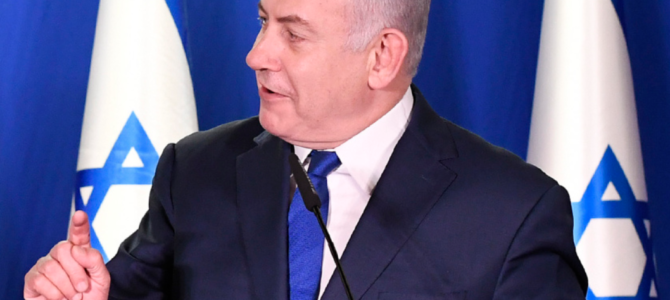Benjamin Netanyahu and Benny Ganzt ended a 17-month struggle for the leadership of Israel on Monday by making an unexpected political compromise. They are now both at the head of the Israeli state.
In a response to the threat of COVID-19, the two rivals have agreed to create a joint government in an effort to lead the nation through the crisis, avoiding a fourth round of elections that would have been likely to continue a yeah and a half of political gridlock. With that possibility out of the way—for better or worse—Israel now has a clearer path forward.
Netayahu will serve as chief prime minister while Ganzt joins him in the office as vice prime minister. Per the terms of the agreement, Netayahu will serve another 18 months as prime minister, after which Ganzt will assume full command of the office.
While the resolution puts down one source of conflict, it may open others. To political supporters, Ganzt’s decision to join Benjamin’s existing government looks like a betrayal to the left and centralist ideals of the Blue and White party and their rivalry to Netanyahu’s Likud Party. Some have gone as far as to say that this decision by Ganzt effectively ends the largest political opposition that the Israeli prime minister has faced in his career.
On the other hand, Ganzt says his decision to accept a merger prioritizes the future of the nation over party politics. According to reporting from The New York Times, it doesn’t look like he is going to spend any time second-guessing his decision.
“I am at peace with myself and at peace with my decision,” Ganzt said. “Israel needs a national emergency government. And Israel comes before all else.”
For Netanyahu, the deal comes at a critical time. He is still facing criminal charges for bribery, fraud, and breach of trust, and now has a chance to address those charges from the position of prime minister—undoubtedly a political advantage for the longest-sitting Israeli leader.
While the current priority for the newly formed government is clearly facing the challenges posed by COVID-19, the merger has meaningful implications for Israel’s domestic and foreign policy.
Among the many issues that now require a consensus between Netanyahu and Ganzt is the possible annexation of the West Bank Territory. It’s something Netanyahu has advocated for some time now. Many Jewish residents live in the West Bank, but it’s not an area under Israel’s control. Instead, it’s a region that many Palestinian occupants hope becomes a state of their own at a future date.
Ganzt had expressed that he might pursue an annexation of the West Bank—but only with international support. But that was before. Now, a joint government makes it more likely that Israel is one step closer to at least attempting annexation. It’s a hotly contested decision and would most likely not rest well with many foreign leaders. Leaders from the European Union are warning Ganzt to not agree to taking the West Bank.
There’s a lot that’s up in the air for Israel. It remains to be seen whether Netanyahu has scored a political victory through the creation of a joint government. For now, he’s focused on combating the virus.
“I promised the State of Israel a national emergency government that will work to save lives and livelihoods of Israeli citizens,” Netanyahu told audiences.









